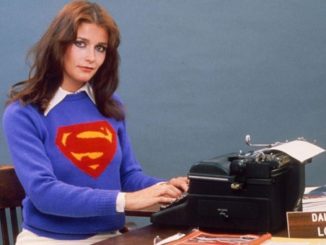
It’s hard for a screenwriter to become a legend. With so many cooks lining up to spoil his “broth”, from producers who want giant spiders in the final act to directors who think they can come up with a better scare than the one written to actors who feel their image will be ruined if they are forced to say a particular line, it takes a truly great writer to run roughshod through that minefield and come out the other side with their talent and unique voice being recognized.
William Goldman was one of the rare writers to do that. Goldman died to day in Manhattan after a lengthy battle with health issues. He was 87.
Goldman was born in Chicago and raised in the Chicago suburb of Highland Park, Illinois. He went to college at Oberlin College where he received a Bachelor of Arts degree. A brief stint in the Army, where he worked as a clerk in the Pentagon, interrupted his education. After his military service was over, he attended Columbia University where he would earn his Masters of Arts degree.
Initially, Goldman set out to be a novelist. His first novel, The Temple of Gold was released in 1956, followed by Your Turn to Curtsy, My Turn to Bow in 1958, and then Soldier in the Rain in 1960.
Struck with writer’s block while writing his next intended novel, Boys and Girls Together, he joined his brother and fellow writer James Goldman in the theater. The pair did rewrites on a the musical Tenderloin, wrote the play Blood, Sweat, and Stanley Poole and co-wrote with John Kander the musical A Family Affair.
While still suffering from writer’s block, Goldman got an idea for another novel, No Way to Treat a Lady which was published under the psuedonym Harry Longbaugh in 1964. An early draft of that novel was read by Cliff Robertson, who picked Goldman to write an adaption of the novel Flowers for Algernon for Robertson to star in. Robertson rejected Goldman’s script for the film, which would eventually become Charly. but used Goldman to do script polish on another film of his, Masquerade, marking Goldman’s first entry into screenwriting.
Goldman would go on to divide his time between writing novels and writing screenplays, but the screenplays he wrote arguably set his legacy more than his prose did. The list of his films matches up well with the list of the best films of all time: Harper (1966), Butch Cassidy and the Sundance Kid (1969, which earned him the Best Writing, Story and Screenplay Based on Material Not Previously Published or Produced Oscar in 1970), The Stepford Wives (1975), The Great Waldo Pepper (1975), All the President’s Men (1976, which earned Goldman his second Oscar for Best Writing, Screenplay Based on Material from Another Medium), Marathon Man (1976, from his novel of the same name), A Bridge Too Far (1977), The Princess Bride (1987, adapted from his novel), Misery (1990), Chaplin (1992) and Maverick (1994).
In addition, he also wrote the adaptations of his novels Magic (1978) and Heat (1986) and his novels Soldier in the Rain and No Way to Treat a Lady were adapted by other writers in 1963 and 1968 respectively.
He also did script doctoring on films such as Twins (1988), A Few Good Men (1992), Indecent Proposal (1993), Last Action Hero (1993), Malice (1994), Dolores Claiborne (1995), Extreme Measures (1996) and Fierce Creatures (1997).
In 1983, when screenwriting gigs were not coming, Goldman wrote Adventures in the Screen Trade, a memoir/screenwriting tutorial that has helped legions of writers both inside and out of the film industry. He’d follow that up with a sequel, Which Lie Did I Tell? in 2000 and two books of screenplay dissections: Four Screenplays (1995) and Five Screenplays (1996).




